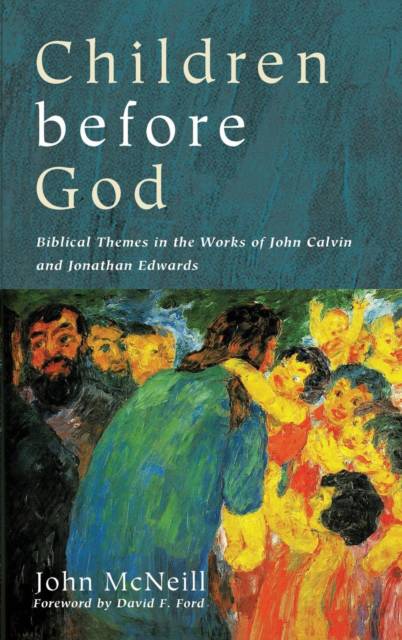
- Retrait gratuit dans votre magasin Club
- 7.000.000 titres dans notre catalogue
- Payer en toute sécurité
- Toujours un magasin près de chez vous
- Retrait gratuit dans votre magasin Club
- 7.000.0000 titres dans notre catalogue
- Payer en toute sécurité
- Toujours un magasin près de chez vous
Children Before God
Biblical Themes in the Works of John Calvin and Jonathan Edwards
John McNeill
Livre relié | Anglais
73,95 €
+ 147 points
Format
Description
This work seeks to delineate a theological framework into which biblically informed imagery and language of children in relation to God can be placed. McNeill's aim is to offer a work of positive construction within the general Reformed tradition. The book shows that John Calvin has much to offer in this respect, but by examining the imagery and language of children in his works it is shown that Calvin is not adequately biblically informed in this area. McNeill argues that Jonathan Edwards provides a theological tool that enables a construal of children more in keeping with biblical language and imagery. The book then offers a general critique of current child development theories in which providential activity in child development is more or less ignored. By adopting Calvin's theological framework to understand children before God, it is argued that the integration of child development and divine providence becomes a distinct possibility. This work should be of interest to those working in biblical, childhood, Calvin, and Edwards studies, as well as to the more general practitioner working with children in church and society.
Spécifications
Parties prenantes
- Auteur(s) :
- Editeur:
Contenu
- Nombre de pages :
- 238
- Langue:
- Anglais
Caractéristiques
- EAN:
- 9781498281089
- Date de parution :
- 09-11-17
- Format:
- Livre relié
- Format numérique:
- Genaaid
- Dimensions :
- 152 mm x 229 mm
- Poids :
- 489 g

Les avis
Nous publions uniquement les avis qui respectent les conditions requises. Consultez nos conditions pour les avis.






